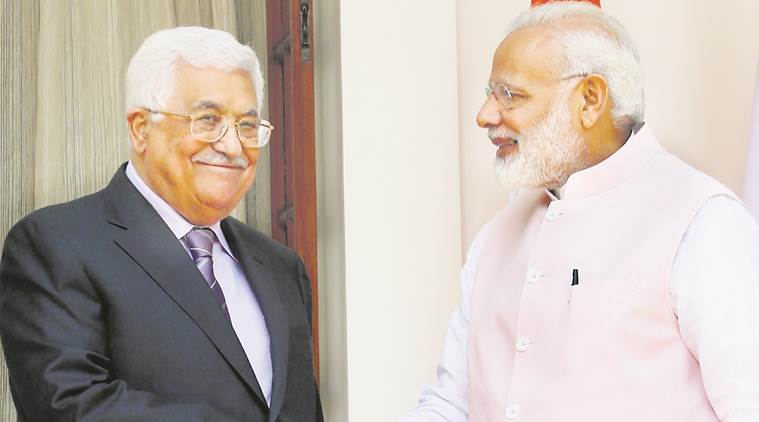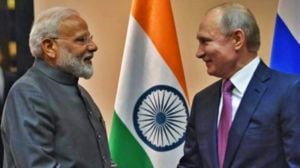Upset at what they think is a “lack of condemnation” in India’s statement on US President Donald Trump’s announcement officially recognising Jerusalem as Israel’s capital last week, Arab ambassadors in Delhi met top officials in South Block, including Minister of State, External Affairs, M J Akbar, and expressed their “deep concern”, The Indian Express has learnt.

After hearing the envoys, sources said Indian officials, led by Akbar, sought to allay their concerns and said that New Delhi was not going to take any position dictated by a “third country”.
“We told them that our policies are based on our principles and reiterated our long-standing position,” a source said.
Sources said the Palestinian government, under President Mahmoud Abbas, has also conveyed to India, through “diplomatic channels”, that New Delhi should “walk the talk” and follow up on the statements issued by Prime Minister Narendra Modi and External Affairs Minister Sushma Swaraj during Abbas’s visit to India this year and issue a “strong statement”.
Responding to Trump’s announcement, the Ministry of External Affairs official spokesperson Raveesh Kumar had said: “India’s position on Palestine is independent and consistent. It is shaped by our views and interests, and not determined by any third country.”
“The Indian statement was disappointing as there was no condemnation of the US President’s decision. We told the Indian side that they should come up with a stronger statement,” said an Arab ambassador who attended the meeting. The Arab world has condemned Trump’s move.
Story continues below this ad
Sources said the fact that India’s statements have stopped mentioning “East Jerusalem” as the Palestinian capital was also pointed out.
In a statement by Prime Minister Narendra Modi on November 25 at the International Day of Solidarity with the Palestinian people, while he reiterated India’s steadfast support for the Palestinian cause, he did not mention East Jerusalem as the Palestinian capital.
Indian government officials are learnt to have pointed out to the Manama Declaration of the First ministerial meeting of the Arab-India Cooperation Forum (January 24, 2016), where the participating sides had expressed their support for Palestinian statehood with “East Jerusalem” as the Capital.
“We told the Indian side that happened last year… and it needs reiteration, as a lot has happened since then,” another diplomat told The Indian Express, referring to the Prime Minister’s visits to Israel and the US in June-July this year.
Story continues below this ad
The Arab envoys were led by Saudi Arabia’s Ambassador to India Saud Bin Mohammed Al-Sati, who is the Dean of the Arab Ambassadors in Delhi. The group included at least 10 Ambassadors and diplomats, including from Sudan, Algeria, Egypt, Morocco, Iraq, Tunisia and UAE among others.
Many Western countries, including UK, France and Germany, had condemned Trump’s move. British Prime Minister Theresa May had called his decision “unhelpful in terms of prospects for peace in the region”. President Emmanuel Macron of France had said Trump’s decision was “regrettable” and “France and Europe are committed to a two-state solution.”
Germany’s Chancellor Angela Merkel had said that her government “does not support this position, because the status of Jerusalem is to be resolved in the framework of a two-state solution.”
UN Secretary General Antonio Guterres had criticised “any unilateral measures that would jeopardise the prospect of peace for Israelis and Palestinians,” underscoring the US administration’s departure from decades of American policy.
Story continues below this ad
The Arab ambassadors in Delhi said that India should take a cue from France, Britain and the international community and affirm its seven-decade-old policy. The view in South Block, however, is that India seeks to tread a “fine balancing act” between the two sides and not get drawn into regional rivalries. Also, it’s early days yet, said a source, and Delhi needs to watch carefully how Trump’s move plays out.

 PM Narendra Modi with Palestine President Mahmoud Abbas. (File photo)
PM Narendra Modi with Palestine President Mahmoud Abbas. (File photo)






